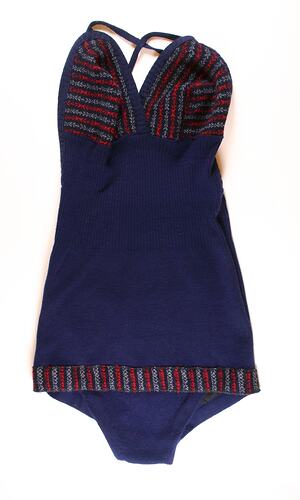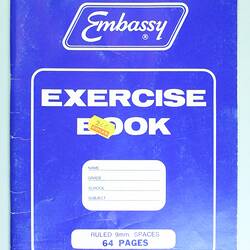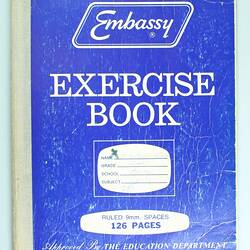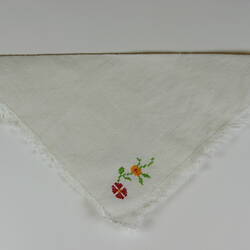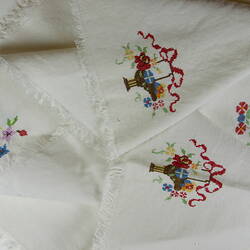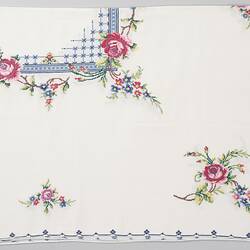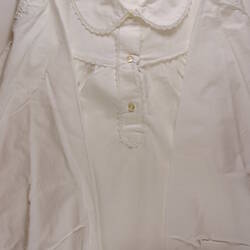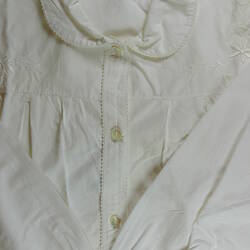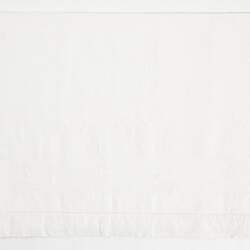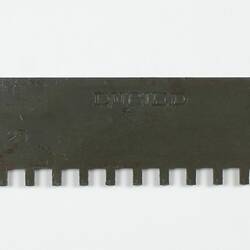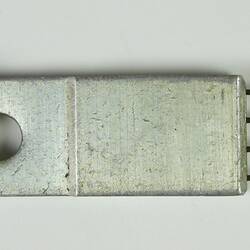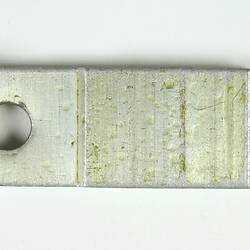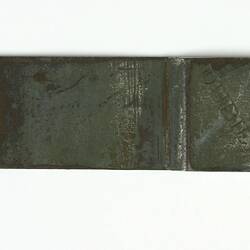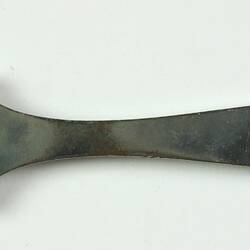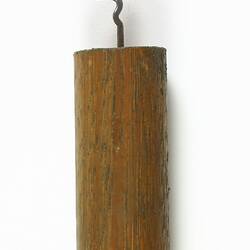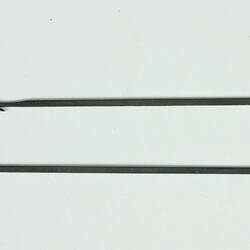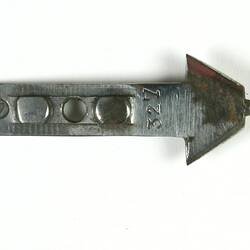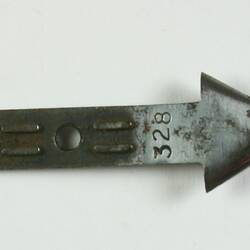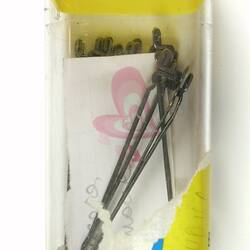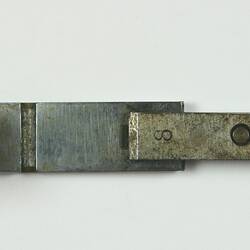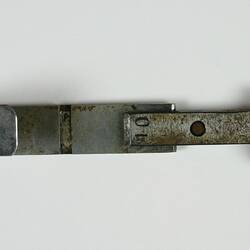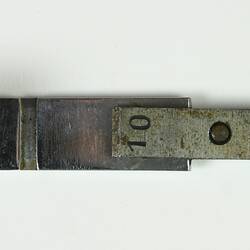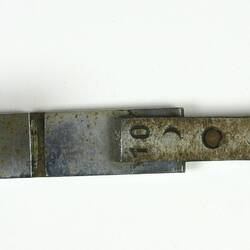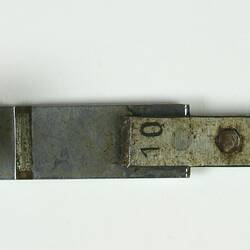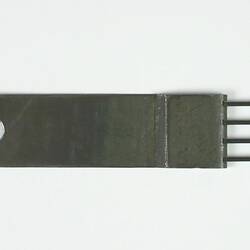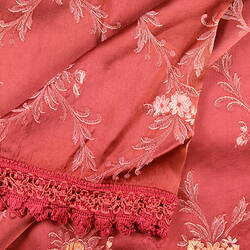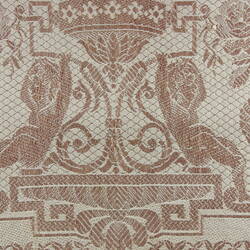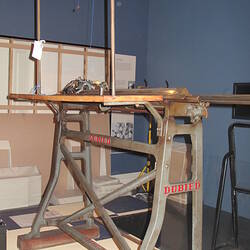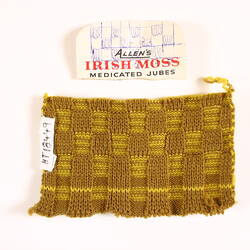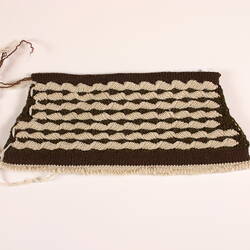Edda Azzola (nee Pugnetti) was born in 1927 in Pontebba, a village in the north Italian region of Friuli. She was the eldest of four children, with two sisters and a brother. She had a strict father and was very ready to marry Angelo Azzola, a boilermaker/welder from her village on 3 January 1953 and leave home. Angelo's friend and neighbour Giovanni Doratti had left for Australia and was sending money home to his mother, who showed it to the young couple, with pride. Edda had early been attracted to Australia in geography classes at school. She was eager for change and adventure so it was a simple decision to seek new opportunities in Australia with the plan to return if it didn't work out.
Angelo migrated first in January 1954 without Edda as she had not been cleared to travel due to illness. She followed in 1955. They both left from Genoa: Angelo on the MV Australia, and Edda on the SS Castel Felice. Angelo travelled via the Suez and Jakarta, Edda via the Suez and Fremantle, arriving at Station Pier, Port Melbourne. Edda really enjoyed the voyage. A number of people from Friuli were on the ship and they became friends. Edda recalls never having seasickness but losing lots of weight during the voyage although she 'ate like a horse.'
Angelo had stayed with his friend Giovanni in Footscray upon arrival. Giovanni had sponsored him and he was the only person in Australia Angelo knew (Giovanni was to return to Italy in 1968 due to family demands and was never able to return, much to his regret). When Edda arrived they boarded in another Footscray house for four-five months. They then moved to North Carlton and Edda got a job at a quiltmaking factory in Collingwood for a few months. However the factory laid off the married women when cuts needed to be made. Meanwhile, Angelo was working at various boiler making jobs and then he and Giovanni headed for the Snowy Mountain Scheme around March 1956 and stayed until December 1957, returning home frequently. He enjoyed the experience and the work resulted in a solid deposit on their first house in Reservoir which they purchased, half built in 1960, and they lived there throughout their lives together. After the factory, Edda worked for a year cleaning lab equipment in the Pathology Department at the University of Melbourne. She then left to give birth to her son Frank in February 1958.
In Italy, Edda and her sisters had had a knitting machine at home where people from the village and surrounds brought in wool to be made into clothes. The income was saved by their mother who used the money to purchase items for their dowries. Edda's dowry included six pairs of double linen sheets which she embroidered, 12 towels and other items. In 1958 in Melbourne, Edda purchased a similar model knitting machine (around two thirds the size of the Italian model) from an Italian girl who had brought it out to Australia from Friuli. She was returning home and couldn't afford to take it with her. Edda felt that this was an income earner worth trying. The sister of the owner of the North Fitzroy house they were renting at the time passed her name on to a man starting up a business who brought sample work to her to see if she could produce it. But his requirements were too demanding.
Edda then made contact with a Polish factory owner, Richard Charlupski, who owned an inner city knitting factory. He wanted to expand his business into more finely finished work. He supplied wool to Edda and other women to produce clothes which were supplied to stores such as Georges, Myer and David Jones under the label 'Ricardo Knitwear'. Edda worked for the factory until it closed in 1974, working on her machine and finishing by hand, making coats, suits, jackets, skirts, dresses, jumpers, vests and cardigans. Her machine was located in a room at the rear of the house, overlooking the back yard. She worked five-six hours a day, depending on demand and deadlines and the work suited her as it allowed her the flexibility of working from home, and organising her labour to suit her domestic needs. By 1974 Edda was earning about $70 a week, demonstrating the meagreness of the wage.
After 1974, Edda used the machine to make clothing for family and friends, including baby clothes for her grandchildren. She and Angelo returned to Italy several times, including once to the bedside of her dying father. Some family members visited the couple but none migrated. Edda and Angelo were foundation and lifelong members of the 'Fogolan Furlan' Italian Club in Thornbury which had started in 1957. It was a club especially for migrants from Friuli. Angelo passed away in 1999.
More Information
-
Keywords
-
Authors
-
Article types
